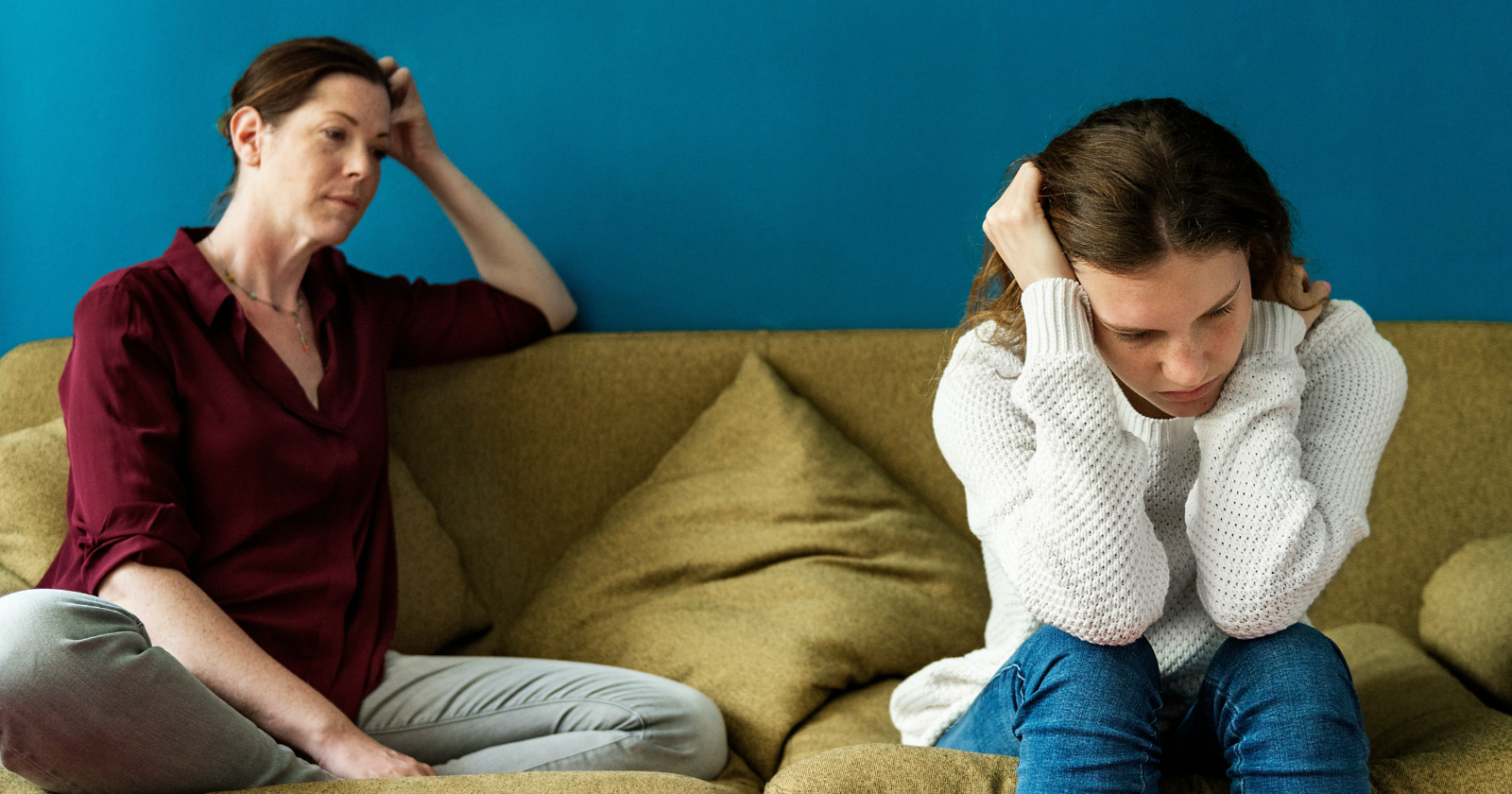Strict parents usually mean well. They want to raise respectful, responsible kids who make good choices.
But when the rules were heavy-handed, the punishments swift, and the freedom to explore was limited, the effects don’t just disappear when we grow up.
They show up in subtle (and sometimes not-so-subtle) ways in adulthood.
If you ever catch yourself double-checking your every move, worrying about disappointing someone, or struggling to trust your own instincts—you’re not alone.
Many adults raised in rigid households carry patterns that don’t serve them anymore.
Let’s unpack seven common habits that might still be lingering, and what you can do to gently shift them.
1) Always seeking permission before making decisions
Do you ever hesitate to act until you’ve checked with someone else first?
Growing up with strict parents often meant every choice had to be approved—whether it was what you wore, who you hung out with, or how you spent your time.
That constant oversight can leave you second-guessing yourself as an adult.
You might crave validation before making even small decisions, like what to cook for dinner or whether to take a day off work.
It’s not that collaboration is bad—of course it isn’t.
Related Stories from The Artful Parent
- There comes a day when your child stops telling you things — not because something went wrong but because they found someone else to tell — and that’s the version of letting go that no one prepares a parent for
- A child will grow up and forget almost everything about their childhood except how the house felt when they walked in the door — and that feeling was never about the house
- People who swore they’d never parent the way they were parented usually display these 9 behaviors by the time their kids turn 12 — and every single one traces directly back to the parent they were trying not to become
But when you can’t trust your own judgment without outside approval, it’s a sign the old pattern is still running the show.
Try giving yourself permission to experiment.
Start with little things: pick the restaurant without polling anyone, wear the outfit you like without wondering if it’s “appropriate.”
Each time you trust yourself, you build that muscle back up.
2) Feeling guilty for relaxing
Strict homes often tie worth to productivity.
Sitting still? Lazy. Taking a nap? Wasteful. Reading for fun?
- Psychology says adults who can’t make decisions without asking everyone’s opinion aren’t indecisive—they were criticized so harshly for wrong choices that they outsource the blame - Global English Editing
- I retired at 65 after thirty years in education, and the thing nobody prepared me for wasn’t boredom or finances, it was the genuine terror of watching my own mind with suspicion every single day - Global English Editing
- I spent forty-three years being the person everyone counted on at work and then I retired and realized I had built my entire identity around solving other people’s problems—and now nobody needs me to solve anything - Global English Editing
Only after chores are done.
If that sounds familiar, you might notice guilt creeping in anytime you try to rest as an adult.
Even when your body is begging for a break, your mind says: “You should be doing more.”
I’ve caught myself in this trap—folding laundry while listening to a podcast, because heaven forbid I just…listen.
But here’s the truth: rest isn’t a reward you have to earn. It’s a basic human need.
As Dr. Saundra Dalton-Smith, author of Sacred Rest, reminds us: “Rest is not simply the absence of activity. It is the presence of restoration.”
Giving yourself permission to rest—without guilt—is an act of re-parenting yourself with kindness.
3) Struggling to express emotions openly
Maybe you heard phrases like “Stop crying or I’ll give you something to cry about” or “Don’t talk back.”
When emotions were met with punishment or dismissal, you learned to bottle them up.
The problem? Those bottled-up feelings don’t vanish.
They resurface as anxiety, tension, or even health issues.
Adults raised this way often struggle to be vulnerable in relationships because it feels unsafe to show their true feelings.
I’ve found it helpful to start by naming emotions out loud—even just to myself.
“I’m feeling frustrated.” “I’m disappointed.” It sounds small, but language is powerful.
It reminds us that emotions aren’t wrong or shameful; they’re simply signals.
And as researcher Brené Brown puts it: “Vulnerability is not weakness. It’s our greatest measure of courage.”
Learning to share emotions—even clumsily at first—builds deeper, more authentic connections.
4) Over-apologizing for everything
Have you ever said “sorry” when someone else bumped into you?
Over-apologizing is a classic carryover from strict households, where stepping out of line—even accidentally—could bring harsh consequences.
As kids, we learned it was safer to preemptively apologize for existing than risk criticism.
But as adults, it chips away at our confidence and can make us appear less capable than we actually are.
A gentle reframe: swap “sorry” for “thank you.” Instead of “Sorry I’m late,” try “Thanks for waiting for me.”
Instead of “Sorry I talk too much,” say “Thanks for listening.”
It shifts the energy from self-blame to appreciation.
It’s not about never apologizing when you’re truly wrong.
It’s about recognizing you don’t have to shrink yourself to stay safe anymore.
5) Difficulty trusting your own instincts

Strict parenting often emphasizes obedience over intuition.
You were told what to do, how to do it, and when to do it—leaving little room to follow your gut.
So now, as an adult, you might find yourself paralyzed when faced with choices, afraid to trust that inner voice.
Maybe you even silence it before it can speak, out of habit.
I see this in my own parenting. There are days when my instinct says: let Ellie play barefoot in the yard, even if she comes back muddy.
But there’s still a voice in my head whispering, “That’s irresponsible. Shoes should stay on.”
Tuning back into your intuition takes practice.
Start by noticing small nudges—like craving a quiet night in instead of going out. Then honor them.
With time, you’ll realize your inner compass has always been there, waiting to guide you.
6) Fearing authority figures
When childhood meant constant correction, adults in positions of authority can still trigger fear responses.
Maybe your boss feels like a parent waiting to scold you. Maybe even a doctor’s appointment makes you nervous.
This isn’t immaturity—it’s conditioning.
Your nervous system remembers what it felt like to “get in trouble,” and it braces for impact, even when the situation is safe.
The good news? You can rewire those responses.
Grounding practices help—like taking slow breaths before a meeting or reminding yourself: “I’m an adult now. I’m safe.”
Over time, your body learns new associations.
As noted by trauma expert Dr. Gabor Maté: “Safety is not the absence of threat, but the presence of connection.”
Building safe, supportive relationships helps dissolve old fear patterns.
7) Struggling with perfectionism
In many strict households, mistakes weren’t just mistakes—they were failures.
The A-minus wasn’t good enough. The missed chore meant you were irresponsible.
As adults, that pressure often turns into perfectionism.
You might feel like nothing you do is ever quite enough, so you overwork, over-prepare, or avoid risks altogether.
Perfectionism is sneaky because it masquerades as “high standards.” But deep down, it’s fueled by fear of rejection or punishment.
One practice that’s helped me is reminding myself (and my kids) that mistakes are part of learning.
In our home, we celebrate “beautiful oops”—the spilled water that led to a funny cleanup dance, the crooked drawing that turned into a new game.
Little by little, we learn that being imperfect doesn’t mean being unworthy.
Closing thoughts
If you recognize yourself in any of these habits, please know: you’re not broken. You’re human.
These patterns developed because, as children, they helped us survive environments where love felt conditional and safety hinged on compliance.
The beautiful thing about adulthood is that we get to rewrite the script.
We get to practice trusting ourselves, resting without guilt, expressing emotions, and embracing imperfection.
And the more we do, the more we show our children another way forward—one rooted in connection, not control.
Breaking old habits isn’t easy.
Some days, it feels like two steps forward, one step back.
But every time you pause and choose differently, you’re giving yourself the freedom your younger self always needed.
And maybe that’s the greatest gift we can pass on: the courage to live as whole, messy, beautifully imperfect humans.



